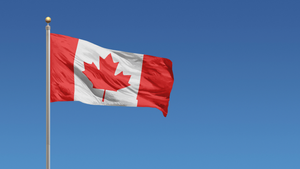The Canadian music industry has welcomed the announcement that streaming services - both audio and video platforms - will be mandated to allocate 5% of their revenues in the country to organisations that support the creation of Canadian music and other content.
However, the streaming services have dubbed the move a “protectionist subsidy for radio” that will likely result in subscription price increases adding to the “affordability crisis” already hitting Canadian consumers.
So far that criticism has come from the trade body for music streaming services in North America, the Digital Media Association. Though previously Spotify in particular has been highly disparaging of any moves by governments around the world to introduce new costs for streaming platforms. That includes the introduction of direct remuneration rights for performers or, as in Canada, levies to benefit organisations that support music development.
When Uruguay introduced a new performer remuneration right, Spotify announced it was pulling out of the country until it was confirmed that it would be the responsibility of record labels to make the payments. It then threatened to “disinvest” from France when a new 1.2% streaming levy was introduced there to provide new funds for the Centre National De La Musique.
The argument put forward by Spotify is that streaming services already pay the lion’s share - 65-70% - of their revenues to the music industry and therefore can't accommodate any other costs. Ultimately in France - after its tantrum - Spotify passed the 1.2% onto its customers, announcing last week that subscriptions will increase by thirteen cents a month. A similar move in Canada would be more significant given the levy there is 5%.
The legal framework for the Canadian levy comes from the country’s Online Streaming Act, which left it to the Canadian Radio-Television And Telecommunications Commission to sort out the specifics of how the levy would actually be implemented.
According to the CRTC, the 5% paid over by music streaming services breaks down as follows: 2.5% will go to the music industry supporting FACTOR, Musicaction, Starmaker Fund and Fonds RadioStar; 1.5% will go to a new fund supporting local news production by commercial radio stations; 0.5% to the Community Radio Fund Of Canada; and 5% to funds supporting Indigenous music and audio content.
FACTOR, which runs various schemes to support the Canadian music industry, is currently funded partly by government and partly by levies paid by commercial broadcasters. With streaming services arguably competing with radio, especially among younger consumers, some in the music community have been calling for the digital platforms to provide funding for FACTOR moving forward.
Andrew Cash, CEO of the Canadian Independent Music Association, said that the CRTC’s decision regarding the levy was “good news for the Canadian music sector. As we look towards the future of music in Canada, this decision lays the groundwork for a dynamic partnership with digital platforms where Canadian talent can thrive both domestically and internationally”.
But Graham Davies, CEO of the Digital Media Association, said his members were “deeply concerned with today’s decision to impose a discriminatory tax on music streaming services that are already making significant contributions to Canadian artists and culture”.
Noting that a chunk of the levy will go into the radio sector, he continued, “Streaming is the main source of revenue and engine of growth for music in Canada, benefiting the industry, creators, fans and consumers. And this is effectively a protectionist subsidy for radio”.
Hinting that the move will likely result in higher subscription fees for users in the country, he added, “As Canada’s affordability crisis remains a significant challenge, the government needs to avoid adding to this burden. This is especially true for younger Canadians who are the predominant users of audio streaming services”.
He then concluded, “We will be carefully reviewing today’s decision with our members in order to plan next steps accordingly”.

